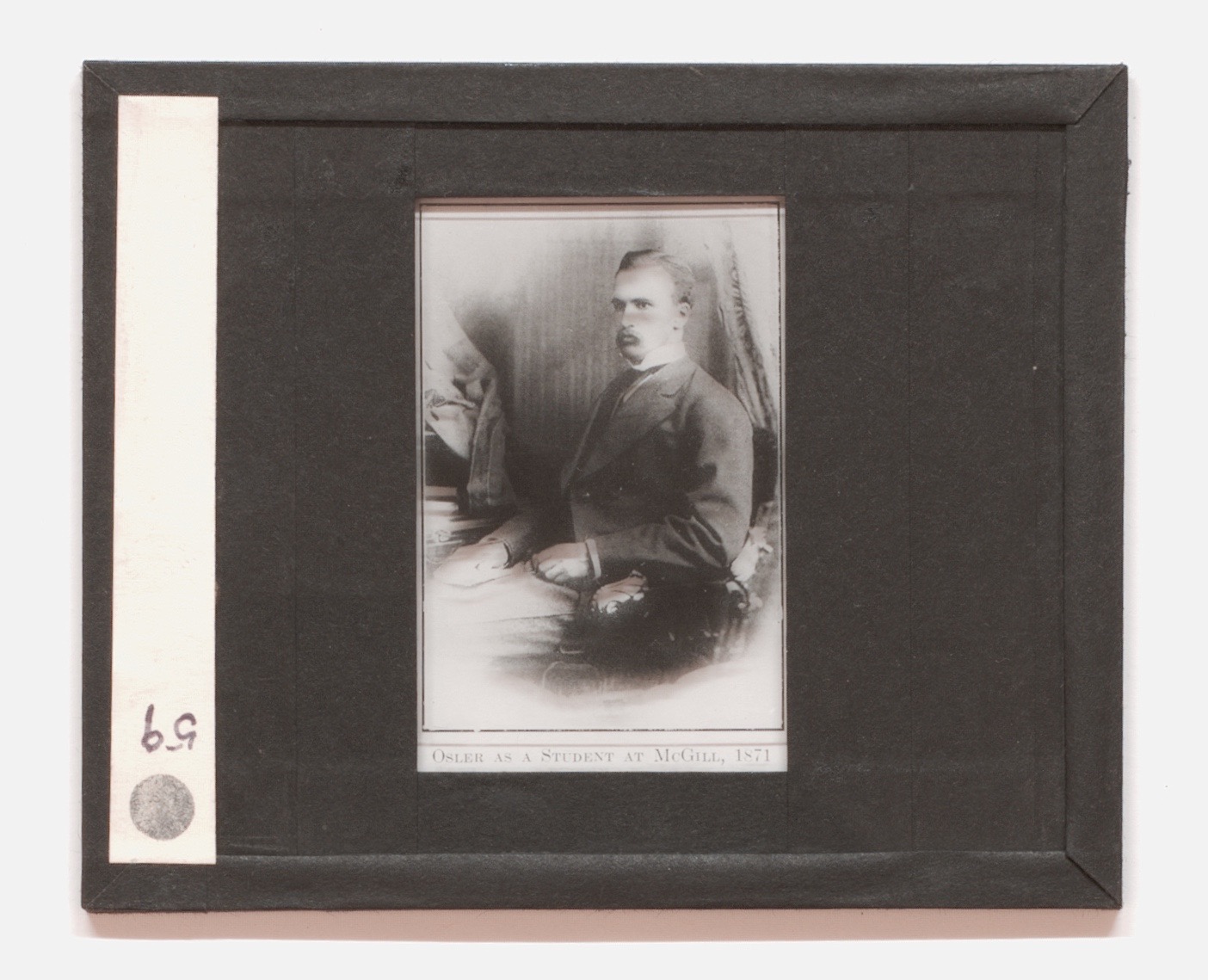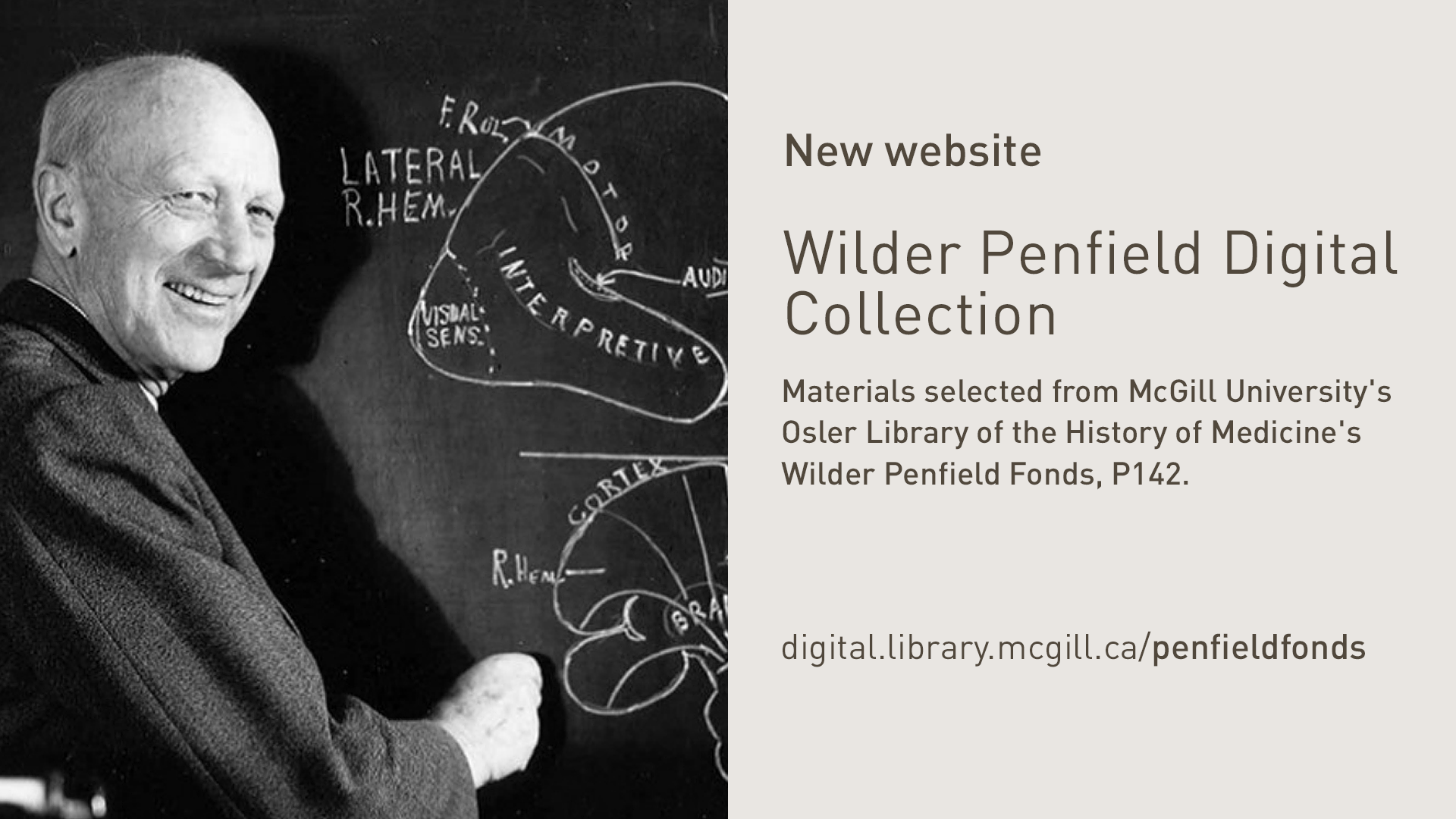
Glass slide from the Osler Library archives shows Osler as a young medical student at McGill University, 1871.
Today marks the 167th birthday of Sir William Osler. In celebration this year, we thought we would highlight several invaluable resources and digital collections that McGill University Library – with the help of generous donors – has made accessible for researchers around the world.
McGill Library William Osler Letter Index — This on-going project at Osler Library provides a wealth of information for researchers to access an index of thousands of letters to and from Sir William Osler. It also provides biographical materials gathered by Dr. Harvey Cushing for his 1925 Pulitzer Prize winning biography The Life of William Osler.
William Osler Photo Collection — Browse the photographic collection, read the accompanying biographical notes, and get a sense of the visual history of William Osler and those who were close to him throughout his life.
Osler Library Archives — Retrieval number P100 will direct you to the William Osler fonds. If you prefer to browse, the subject “Osler, Sir William, Sir, 1849-1919” will provide the many fonds collections containing archival material associated with Osler – fonds that include some of William Osler’s friends, relatives and colleagues throughout his life in Canada, USA, and United Kingdom.
Enjoy your Osler celebrations today from all of us here at the Osler Library of the History of Medicine!


